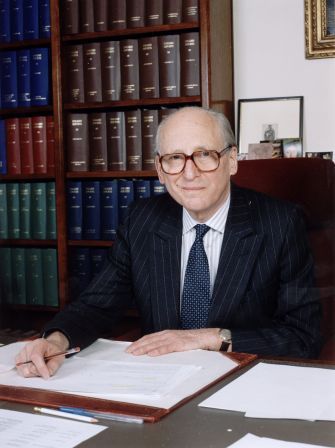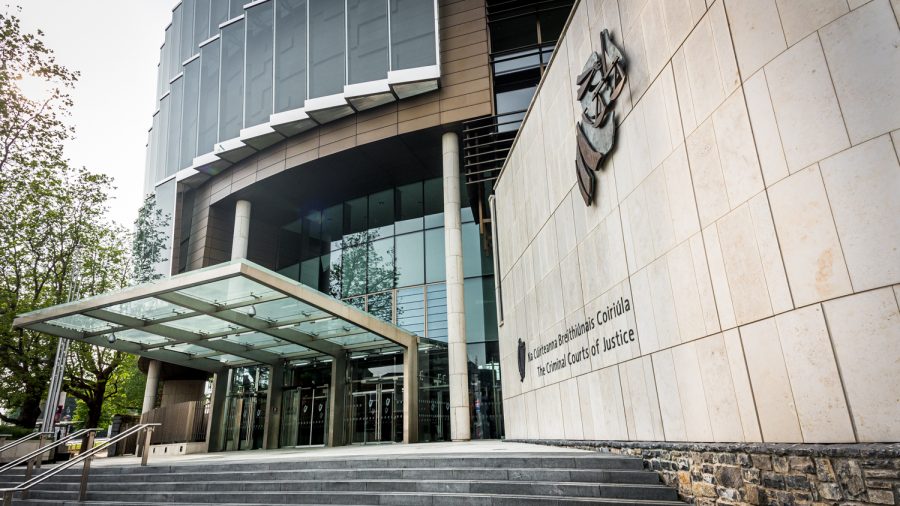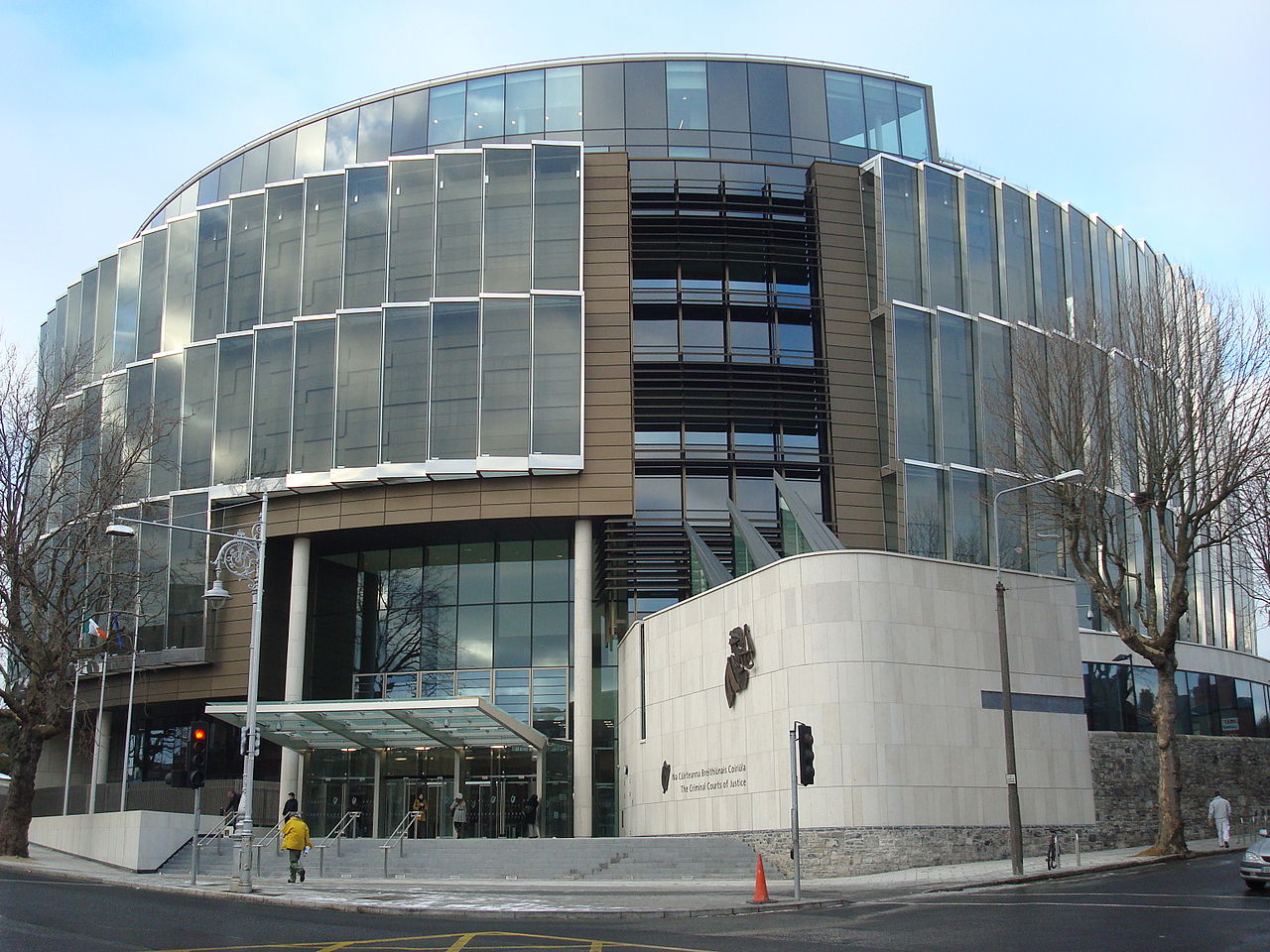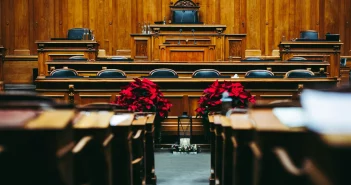All persons and authorities within the state, whether public or private, should be bound by, and entitled to, the benefit of laws publicly and prospectively promulgated and publicly administered in the courts.
Lord Bingham, ‘The Rule of Law‘, Sir David Williams Lecture, Cambridge, 2006.
I have written extensively about the whittling away of due process in Ireland. This is derived from Article 38 of the Constitution, which states: No person shall be tried on any criminal charge save in due course of law.
In 2017 Supreme Court Justice Gerard Hogan at least had the courage to argue that the Irish Courts have, in effect, failed to enforce due process, constitutional rights in Ireland for the past thirty years. ‘Moves’, he said, to reduce the scope of ‘the most fundamental constitutional safeguard of all‘ — the habeas corpus guarantee in Article 40.4.2 – ‘speaks volumes regarding the prevailing constitutional zeitgeist.’ That zeitgeist has only become more illiberal, especially with the advent of emergency powers in response to Covid-19.
Indeed, we have no equivalent to the UK’s Police and Criminal Evidence Act 1984 giving statutory protection to anyone suspected of a crime.
The particular violations of due process have been exposed in the J.C. Case (2015) where the Supreme Court – notwithstanding what was probably Adrian Hardiman’s most brilliant dissenting judgment – effectively allowed the police to characterise as an accident, what seems to have been a purposeful and deliberate breach of constitutional rights.
We have also witnessed the subordination of privacy rights to considerations of public order in the Dwyer Case on appeal to the Supreme Court. There, the Court simply sidestepped the State’s breaches of directly applicable EU data protection legislation, rendering privacy rights a dead duck.
But if these developments aren’t sinister enough, consider what is happening now for the liberty of the subject.

Adrian Hardiman.
In Camera Proceedings
The term in camera in legal and juridical terms is about a hearing being held in private. It is a pragmatic feature of civil or industrial processes, such as patent violations or family law proceedings. It has various implications, including that the names and identities of the parties to the suit are kept out of the public gaze, and reporting restrictions are in place, including press coverage and conventional law reporting. A judgment could be published, and context made clear, but details may be kept out, redacted or anonymised.
The intra-jurisdictional consensus – a fundamental principle of international law – is that when a process or a piece of legislation or an executive decree is adjudicated without there being independent representation or scrutiny it is of dubious authority, as it has not been adequately challenged.
In camera proceedings can be a shortcut to secretive laws, which were even condemned by the Nazi jurist Carl Schmidt. Schmidt’s view is echoed in the minority report on the future of the Special Criminal Court.
So-called emergency powers have a nasty habit of becoming permanent, everywhere. In the face of opposition, however, the UK government repealed its controversial law, giving police the right to apprehend people suspected (hence ‘sus’) of ‘intent to commit an arrestable offence.’
Within Lord Bingham’s summary of the Rule of Law is the idea that the law ‘should be publicly administered in the courts.’ It is crucial for any democracy that all judgments become a matter of public record or, failing that, only partial elements are excluded, and then only by implication, after independent representations of counsel.
This is violated when in camera proceedings occur. Justice, as Bingham said, cannot be achieved behind closed doors.
The current Minister for Justice Helen McEntee TD has, nonetheless, obtained a High Court order from Justice Owens requiring telecommunications service providers to retain certain data – including user, traffic and location data – for a period of twelve months, for the purpose of safeguarding the security of the State.
The Communications (Retention of Data) (Amendment) Act 2022 came into operation on June 26, 2023. Under the terms of the Act, the Minister for Justice must have been satisfied that there exists a serious and genuine, present or foreseeable, threat to the security of the State.
She also, presumably, had regard to the necessity and proportionality of the retention of Schedule 2 data, and how this could potentially impact on the fundamental rights of citizens under the Constitution. Justice Owens was obviously persuaded by her arguments, which are not in the public domain, for reasons of state security; do you see where this is going?
It should also be noted that the Minister consulted with the Garda Commissioner prior to making the application. The Act was, in effect, a transposition of an EU Directive, but no scrutiny has been permitted. No independent counsel. No counterweight.
So what could this threat to the security of the state amount to? Minister McEntee also recently stated that Sinn Féin presents a threat to the criminal justice system because they timorously suggested adopting suggestions of the review group on the Special Criminal Court.
The Yam Case of 2020, which Geoffrey Robertson QC litigated before the ECHR under Article 6, clearly identified that even partial exclusion under the in camera rule and partial reportage invites scrutiny.
Thus, T.J. McIntyre from the Sutherland School of Law in UCD argued that Ireland’s new mass surveillance regime is ‘certain’ to be challenged in the European courts. He said the government’s decision to seek a High Court order was made ‘behind closed doors, without any consultation with the data protection commissioner, with civil society, or with the industry’ and, importantly with no detail provided on the supposed national security threat.
In a damning assessment he stated:
The 2022 Act has to be treated as of no legal value … You can’t have a measure that’s supposed to authorise mass surveillance of the entire population, and be the basis for criminal investigations and prosecutions for years to come, where its foundation is so uncertain. It’s grossly irresponsible to do that.

Thomas Bingham, Baron Bingham of Cornhill 1933-2010.
Special Justice
The Special Criminal Court is a three-judge criminal court, convened without a jury to avoid any potential intimidation of its members. It is enabled by the Offences Against the State Act, the first of which was published in 1939 to prosecute members of the IRA and declare any similar organisations unlawful. More recently, the Court has been used to deal with the deadly rise in gangland crime and organised criminal syndicates.
The legislation, and its Court, have been criticised by Amnesty International, the United Nations and the Irish Council of Civil Liberties over the last number of decades and at its inception by Mary Robinson.
Most of the recent review group concluded that the use of a non-jury court is ‘justified’ and that the court is needed to counter ‘a real risk to juror intimidations.’ However, the review added, contradictorily, that there is ‘an absence of concrete evidence’ on the nature and extent of the risk posed to jurors today. The review added that a non-jury court should only be used in ‘an exceptional case.’
One way that the review recommended this should be done is through abolishing ‘scheduled offences’ – where certain offences are automatically tried by a non-jury court – and placing the decision in the hands of the Director of Public Prosecutions (DPP), which, it should be noted, is a political appointment.
As an additional safeguard, the majority review recommended the appointment of a judge to review whether the correct procedure has been followed by the DPP, and whether the decision had been made based on of the evidence heard in that case alone. This would mean, under the new Court, that the DPP would decide whether it is suitable that a citizen, who stands accused of a crime, be tried in a non-jury court based on the evidence in the case, regardless of the case’s threat to national security.
Accompanying the majority review, there is also a minority review which argues that the establishment of a permanent non-jury court is ‘constitutionally inappropriate’. The minority review said: ‘Just because something can be done does not mean it should be done, we are in danger in all sorts of way as Iseult O’Malley of the Irish Supreme Court said of becoming ‘overly habituated to the abnormal.’
Commenting on the recommendation to replace the SCC with a new Special Criminal Court Minister for Justice Helen McEntee said that the Special Criminal Court eliminates the very real risk to jurors and potential jurors posed by subversives and organised criminal groups. She said that the recommendation from the review group ‘requires serious consideration’ due to the importance of the Special Criminal Court and its place in the Irish judicial system.

Minister for Justice Helen McEntee.
‘Belief Evidence’
As well as non-jury trials, the SCC has special powers to accept ‘belief-evidence’. This allows the belief of a Garda Chief Superintendent that a person is a member of an illegal organisation to be used and accepted as evidence of that person’s membership. While the majority’s report recommends that new legislation be created to provide more regulation around the use of non-jury courts, they have deemed the continuation of belief-evidence ‘appropriate’.
While the report says that belief-evidence can continue to be used, it adds that someone must not be prosecuted ‘solely on the basis of that evidence.’ There needs to be corroboration. The minority simply notes that the UK police did not need belief evidence to prosecute and recommends its abolition.
Last month, Minister Simon Harris, who took over as Justice Minister while McEntee was on maternity leave, received approval to propose the resolutions to extend the legislation. A Government spokesperson said Harris considered that there remained ‘a real and persistent threat from terrorist activity, primarily from so-called ‘dissident’ republican paramilitary groups.’

The criminal court of justice, Dublin. Daniele Idini/Cassandra Voices
Conclusion
We appear to be witnessing a serious regression in the Rule of Law in Ireland, where unspecified threats to the state are decided in camera, and an extension to the use of judges without jury with police belief evidence continuing to be accepted. All of this twenty-five years after the signature of the Good Friday Agreement which effectively ended the Troubles.




